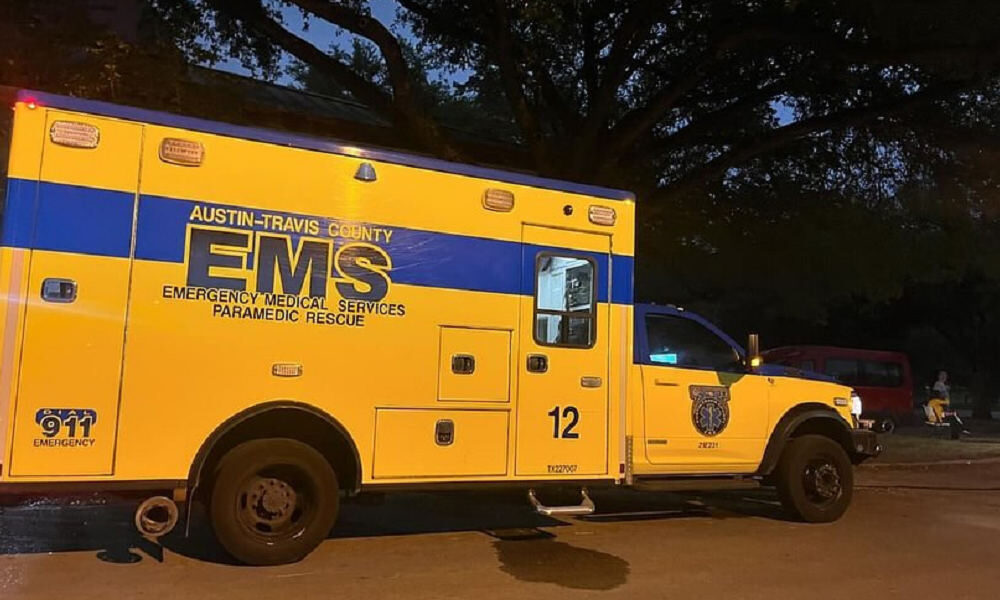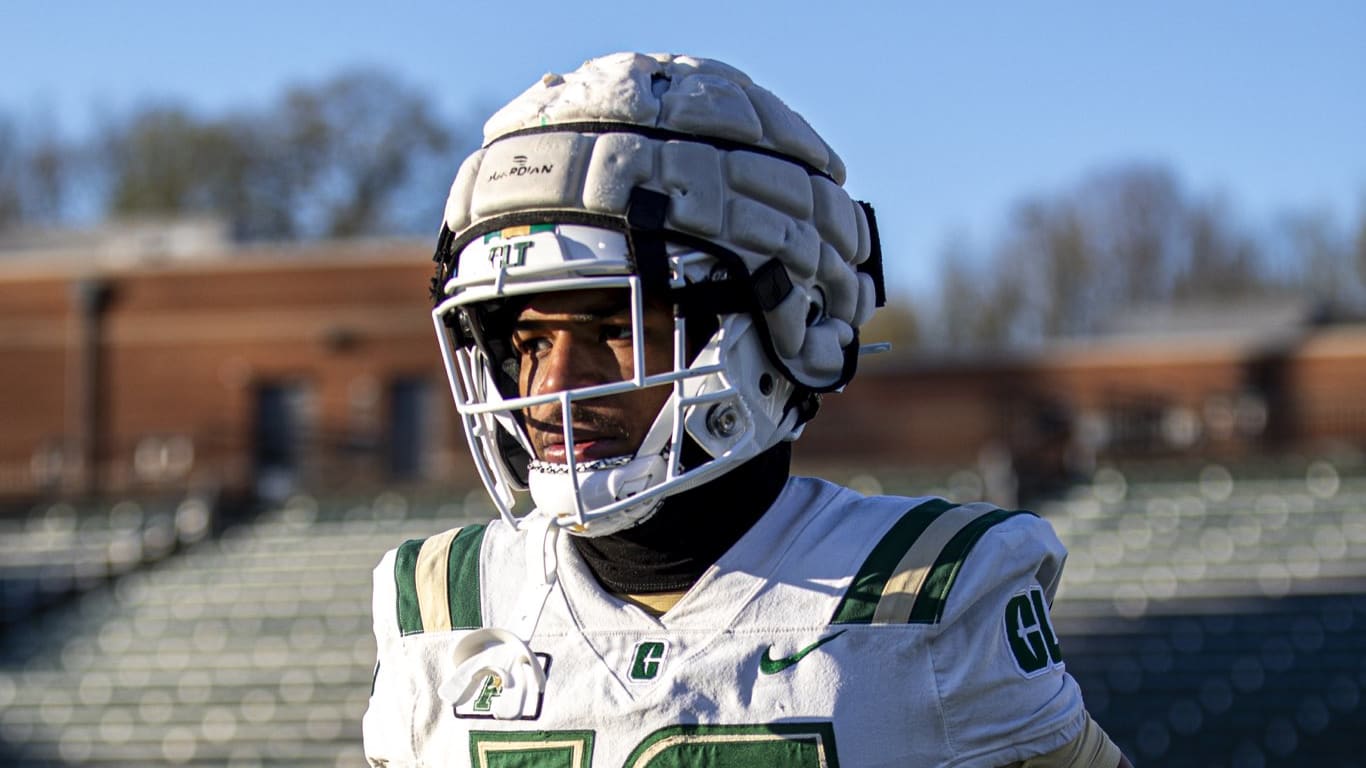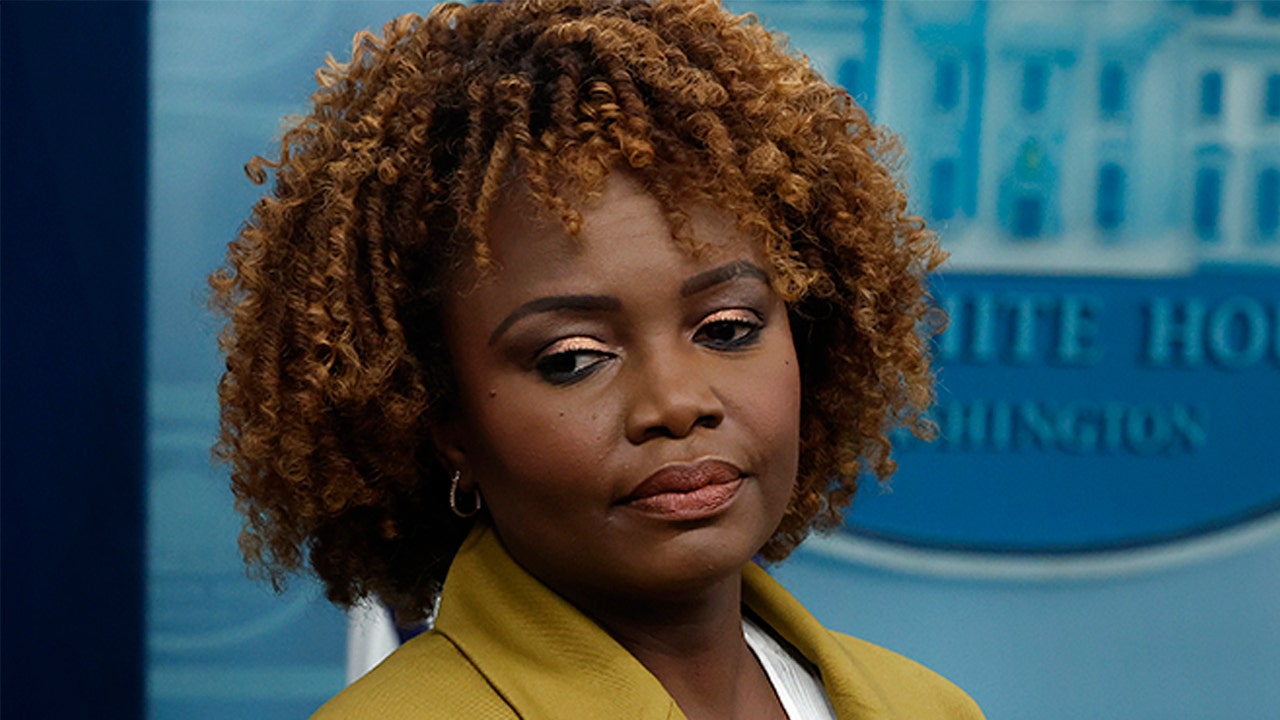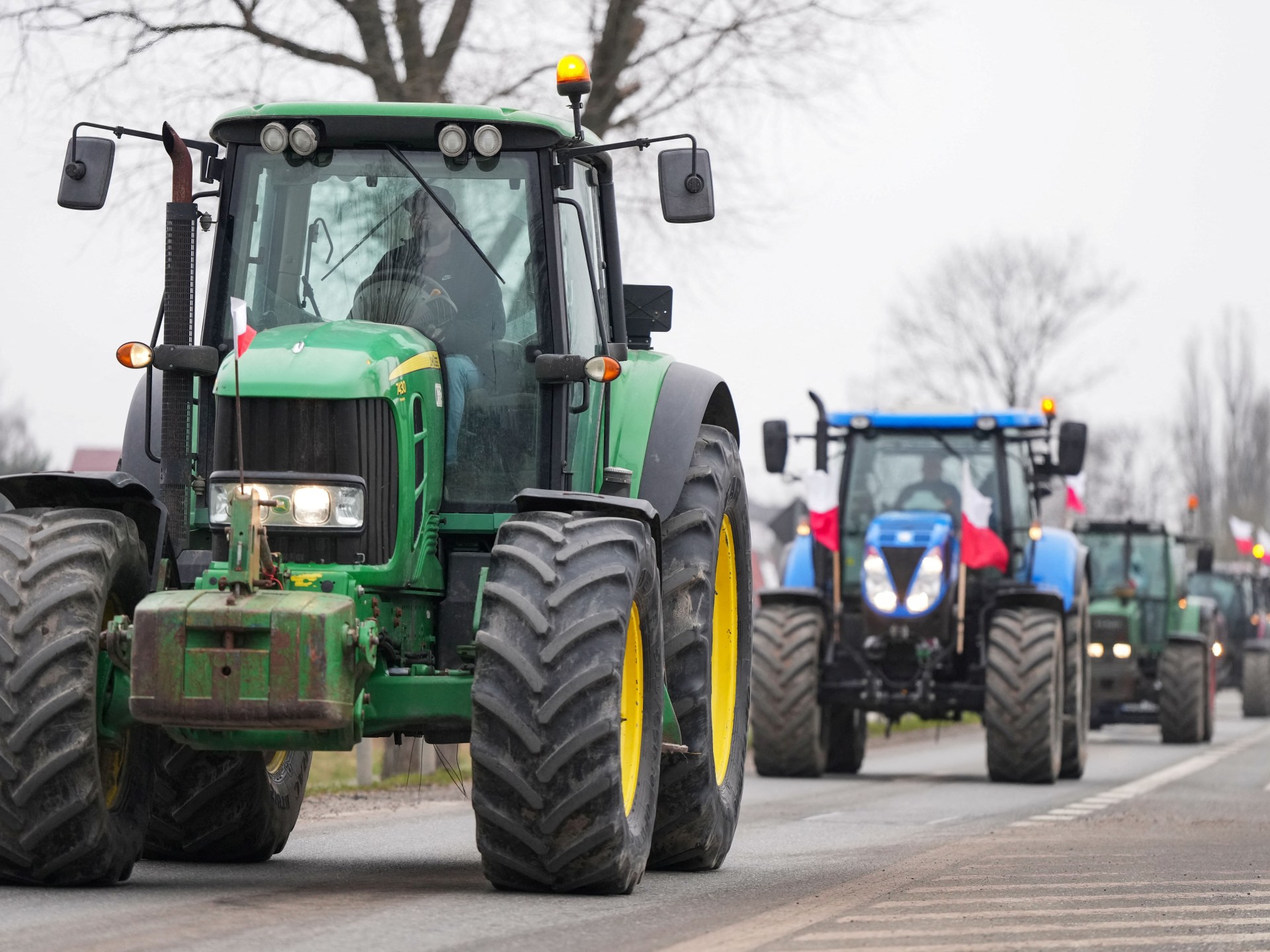Michigan
Michigan State Football’s Chad Wilt Explains the Rush End
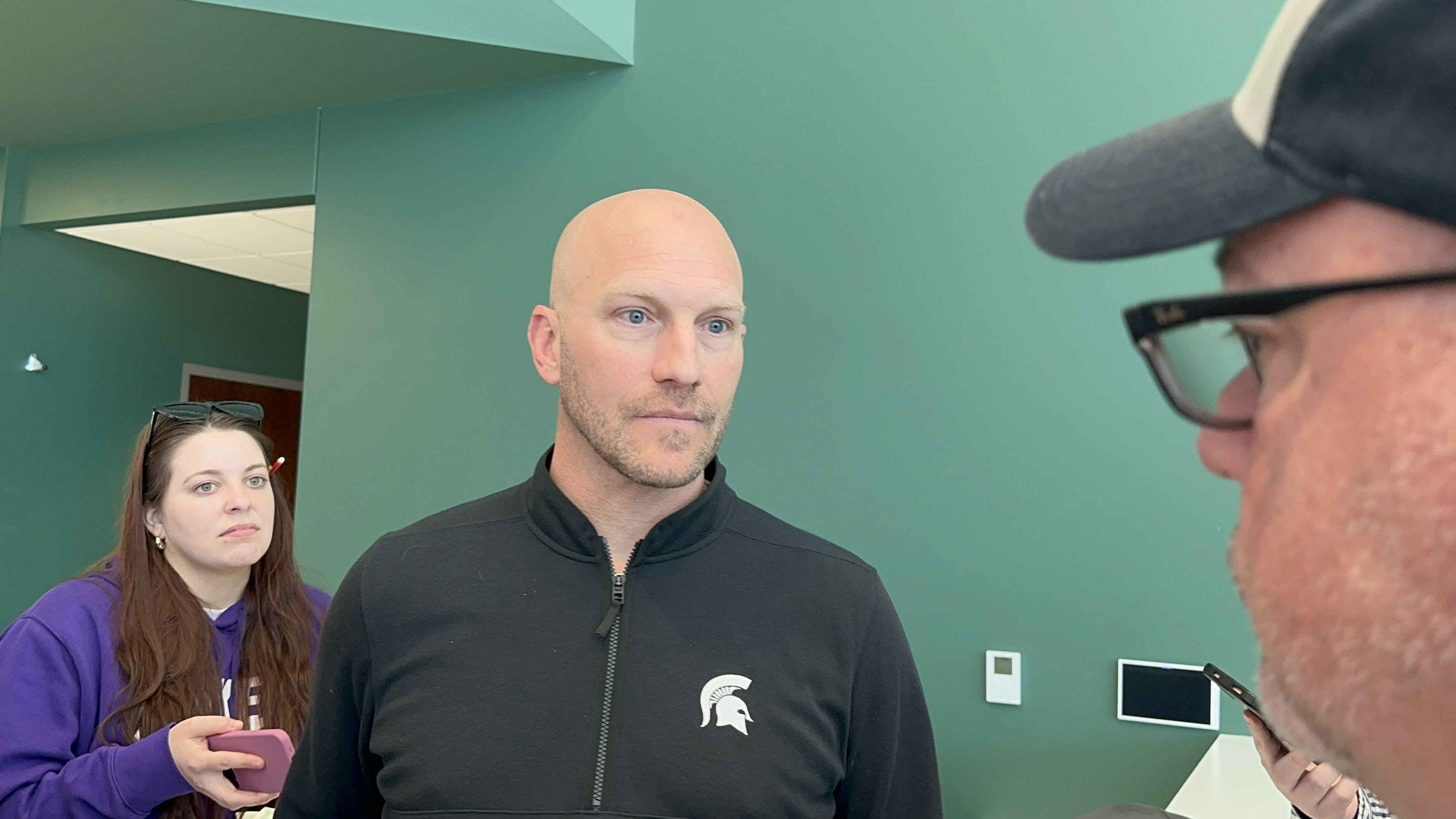
Michigan State football is implementing a unique position group within its defense: the rush end.
It is nothing new in football, but it’s a classification you don’t hear too often. The Spartans will have a specific coach teaching this group: former Indiana defensive coordinator Chad Wilt.
“This rush end position — we were talking earlier — it’s it’s a hybrid outside backer/D-end thing,” Wilt told reporters after Michigan State’s spring practice on Tuesday. “So sometimes, he’s going to have D-end jobs — play over tight end, right? Play in the C-gap, be strong and sturdy and sometimes it might be ‘Hey, you’re gonna be over this tight end man-to-man.
Wilt explained the origin and purpose of the rush end position.
“It goes back to … the jobs that they’re going to be asked are very different,” Wilt said. “And some of those jobs you can’t do from a three-point stance — or, I shouldn’t say can’t — extremely difficult to do from a three-point stance. So now we can do that from a two-point, and you don’t know offensively that, ‘Okay, hey, we’re gonna be in our pressure package or we’re gonna be in our base package here — base calls.’ So I think just allow those guys the freedom and flexibility, but then it also gives us, I think, another set of eyes that can see, right? Instead of having four guys down — and those guys, once they put their hand in the stance, you can see a whole lot.
“And then, those guys for the rush ends, it that allows them to take a little bit of stress and pressure off the backers. ‘Hey, what’s the backfield set that they’re in? Where are the tight ends’ alignment? What are the details of the tight ends’ alignment? Hey, the back moved, the back flipped sides.’ Now, our rush ends can make some of those calls, and now, the backers don’t have to.”
Wilt said the use of the rush end is a response to modern offenses.
“We can take those guys that we have in our package — I mean, there’s a lot of things we can do with those guys. And our check systems — ‘How do we want to play this formation? How do we want to play this set? How do we want to play open pictures? How do we play empty pictures?’ We have variety within the scheme and system and they’re standing up, it becomes a little bit easier to get in and out of things.”
The Michigan State Spartan Football “Spring Showcase” will be held at the High Cathedral of the Spartan Nation, Spartan Stadium, on April 20, 2024, at 2 p.m.
Don’t forget to follow the official Spartan Nation Page on Facebook Spartan Nation WHEN YOU CLICK RIGHT HERE, and be a part of our vibrant community group Go Green Go White as well WHEN YOU CLICK RIGHT HERE.

Michigan
Michigan task force created to spur political debates beginning with US Senate race
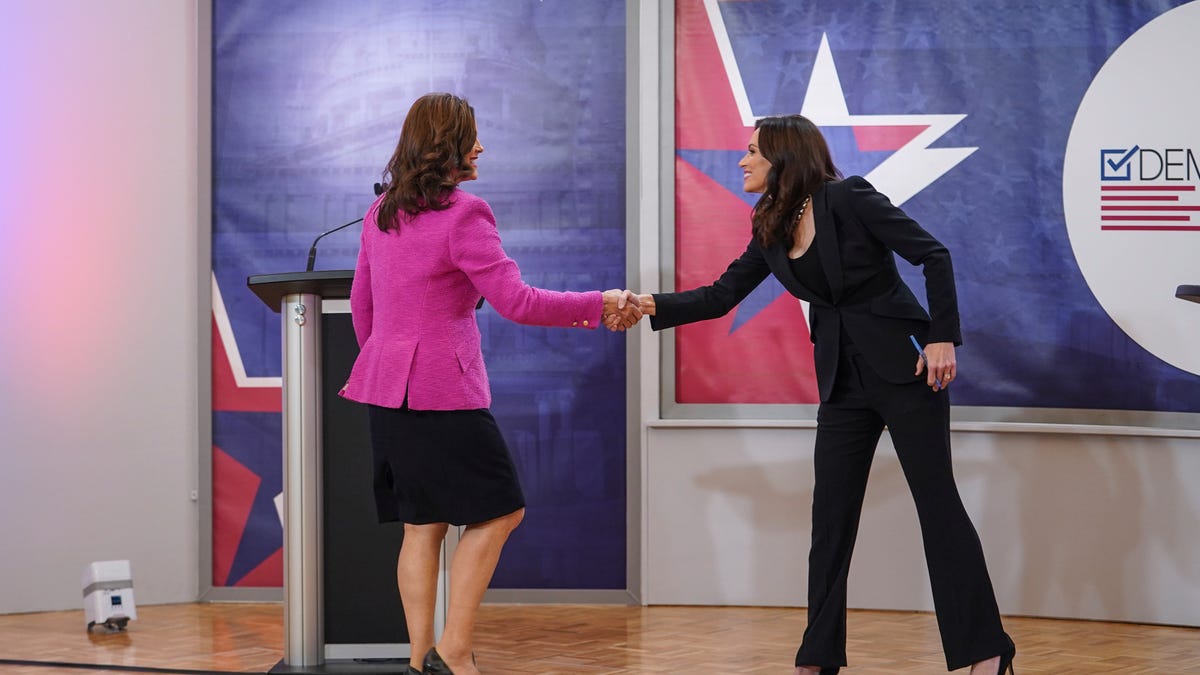
A coalition of Michigan groups, including the Detroit Economic Club, Oakland University and others, have formed a task force working to address a recent decline in the number of political debates by arranging more such events beginning with this year’s campaign for the state’s open U.S. Senate seat.
On Monday, the Michigan Debate Task Force sent letters to the seven major party candidates — three Democrats and four Republicans — running for the seat being vacated by U.S. Sen. Debbie Stabenow, D-Michigan, informing them that whomever wins the Aug. 6 Democratic and Republican primaries will be invited to three debates to be held across the state in September and October ahead of the general election.
Third party candidates or independents appearing on the Nov. 5 ballot would also be invited to participate as long as they meet certain conditions, including polling at 5% or higher in at least two public and independent statewide polls in the month before the first debate, to be held in the Grand Rapids area on Sept. 12.
Other debates would be held in the Traverse City area on Oct. 10 and in metro Detroit on Oct. 22. That schedule, the group said, means the first would occur before absentee ballots are sent, the second before the beginning of Michigan’s early voting period and the third two weeks before Election Day, permitting voters “to hear from the candidates directly no matter how they wish to cast their ballot.”
More: Peter Meijer leaves GOP race for US Senate
Several state media organizations, including the Detroit Free Press, have endorsed the task force and its proposal to hold debates focused on issues of regional and statewide importance, as well as its mission to be an independent and neutral group convening political debates.
“Voters in Michigan are being deprived of important opportunities to hear directly and in an unfiltered settingfrom those who want to serve as the state’s leaders. This is a problem that is escalating across the nation,” the group said in a news release. “By hosting regular debates for statewide offices in Michigan, the task force will increase the opportunities voters have to hear directly from candidates rather than through controlled messages thus improving the quality of information available to voters during the campaign season.”
The group came together over the last couple of years as officials at Oakland University and the Detroit Economic Club began to independently look into ways of generating more debates, especially after the state’s 2022 elections. That year, there were no debates between the state attorney general and secretary of state candidates; two between the gubernatorial candidates were held after absentee ballots went out and less than four weeks before the election.
Eventually, the two groups joined forces and began looking for other partners, with the list growing to include the Economic Club of Traverse City, the Grand Rapids Chamber of Commerce, Grand Valley State University, the Hispanic Center, the Northern Michigan Chamber Alliance, Northwestern Michigan College, the Urban League of Detroit and Southeast Michigan and the Urban League of West Michigan.
Dave Dulio, director of the Center for Civic Engagement at Oakland University, was one of those instrumental in bringing the task force together. He said the idea is to “change the dynamic that sees candidates control everything” that voters get to see before an election. And while, he said, it’s understandable that candidates wish to exercise such control, “that doesn’t mean it serves the public interest.”
“This is a long-term effort,” he said. “We’re not going to necessarily see the kind of debates that maybe we would all want right away but we can improve things incrementally. For the task force the idea is to do it with more frequency and with a neutral party — that being the task force — involved.”
If successful, he said, over time, candidates will learn to understand that they need to participate in the debates, which, for now, will be limited to statewide races, though Dulio said he could see the task force becoming a resource for regional or more local groups to arrange debates of their own.
As for beginning with the U.S. Senate race, Dulio said it’s a natural place to start: “It might be that in September one of the candidates has a pretty sizable polling lead and has a command on the race but my hunch is it’s going to be a close election,” he said. “It’s a hotly contested open seat race that could be the one that determines majority control of the U.S Senate for the next two years.”
The three Democrats who are expected to appear on the August primary ballot include U.S. Rep. Elissa Slotkin, of Holly; Detroit actor Hill Harper and Dearborn businessman Nasser Beydoun. The Republican field includes former U.S. Reps. Mike Rogers, of Brighton, and Justin Amash, of Cascade Township, Grosse Pointe businessman Sandy Pensler and west Michigan physician Sherry O’Donnell.
Contact Todd Spangler: tspangler@freepress.com. Follow him on Twitter@tsspangler
Michigan
Oxford shooter transferred to protective custody unit in northwest Michigan
The Oxford High School shooter has been transferred to a protective custody unit in northwest Michigan, the Michigan Department of Corrections said.
Ethan Crumbley, who was convicted of killing four students and injuring seven people in 2021, was moved Sunday to the Oaks Correctional Facility in Manistee, according to Kyle Kaminski, a spokesperson for the state Department of Corrections.
Crumbley, 18, was transferred from a unit designated for prisoners under 18 at the Thumb Correctional Facility in Lapeer.
“He reached the age of 18, so he was no longer eligible to reside in that specialized unit,” Kaminski said Monday. “He was moved to a protective custody unit at the Oaks Facility.”
Protective housing under the Corrections Department is used for reasons including notoriety of the inmate, former employees of law enforcement and prisoners who make verifiable requests for additional protection, Kaminski said.
“In (Crumbley’s) case, it relates to his notoriety,” he added.
Crumbley is serving a life sentence without the chance of parole after he pleaded guilty and was sentenced in December 2023. He was convicted after firing his gun 33 times in an attack at the Oakland County school in November 2021, killing Hana St. Juliana, 14; Madisyn Baldwin, 17; Tate Myre, 16; and Justin Shilling, 17. Seven people were injured in the attack, including a teacher. Crumbley was 15 at the time.
Crumbley’s parents, James and Jennifer Crumbley, were convicted in jury trials of involuntary manslaughter and sentenced 10-15 years in prison April 9 for gross negligence that contributed to the shooting.
They were the first parents in the United States to be charged with involuntary manslaughter in connection with their child’s mass school shooting. They filed an intent to appeal their convictions last week.
Ethan Crumbley also has filed an intent to appeal. His appointed attorney previously said Crumbley would be invoking his right to remain silent if he were to be called as a witness in his parents’ appeals.
Attorneys for Ethan Crumbley were not immediately available for comment Monday evening.
jaimery@detroitnews.com
Michigan
Operation Ghost Rider targets distracted drivers across Michigan: What to know
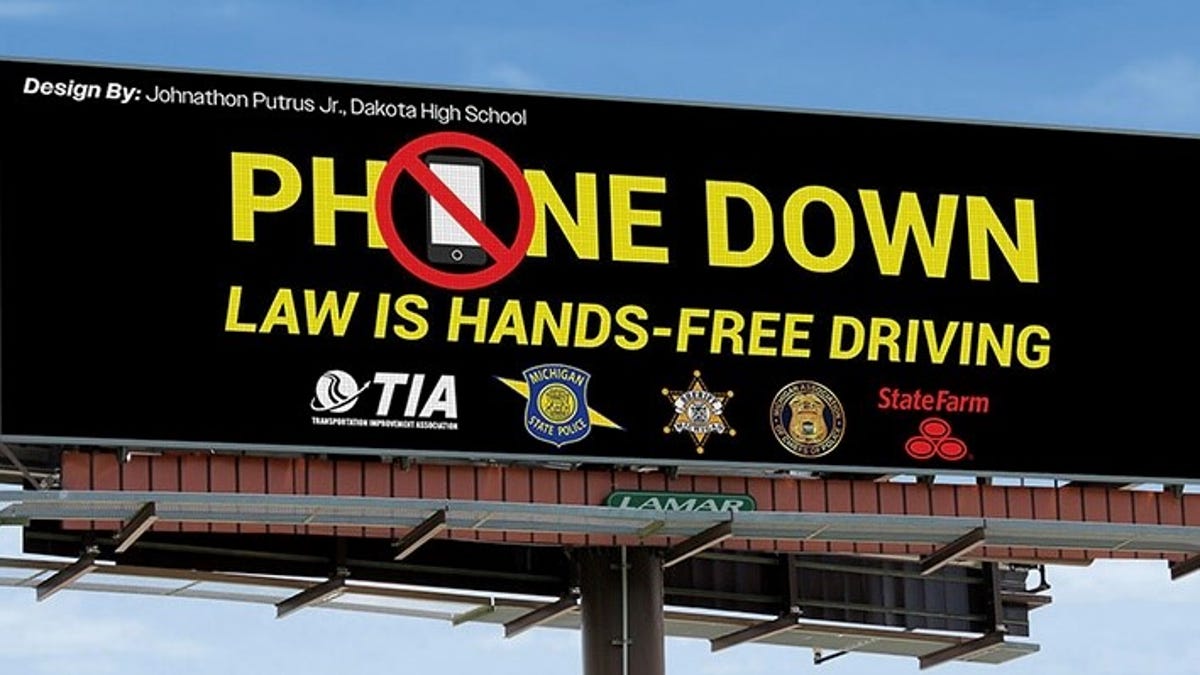
Forget texting, there are more dangerous driving distractions
Texting isn’t the only problem while driving. The most dangerous distraction comes within the car!
Buzz60
Drivers, be sure to keep your hands on the wheel and eyes on the road as Operation Ghost Rider is in effect in Michigan.
Law enforcement officials from agencies across the state are launching the initiative Monday, cracking down on distracted driving.
“Despite knowing the risks, distracted drivers continue to put themselves and the innocent people around them in danger,” said Jim Santilli, CEO of TIA and chairman of the Governor’s Traffic Safety Advisory Commissions’ Distracted Driving Action Team.
Make sure to put your phone away before hitting the road to avoid driving dangers and fines. Using mobile devices for phone calls or social media posts while driving is illegal in Michigan, under legislation in effect since summer 2023.
The operation features unmarked spotter vehicles with a law enforcement officer in the passenger seat, in coordination with the Transportation Improvement Association. When the officer spots a traffic violation, they notify a fully marked law enforcement unit to initiate a traffic stop.
Drivers who use a hand-held device are four times more likely to be in a crash serious enough to cause injury, according to the U.S. Department of Transportation. Drivers who text while driving are 23 times more likely to be involved in a crash.
“Sadly, many people have lost a loved one to a completely preventable behavior. We can all do our part by keeping our eyes on the road and hands on the wheel at all times,” Santilli said.
Penalties are: first violation, $100 fine and/or 16 hours of community service; second or subsequent violations, $250 fine and/or 24 hours of community service; three violations within a three-year period, driver must complete a driving-improvement course. Violators can be cited for careless driving, a three-point offense and civil infraction punishable by a fine. Fines are doubled if a traffic crash occurs and the at-fault driver was holding or manually using a mobile device while operating the vehicle.
Operation Ghost Rider has been in effect in Michigan since 2017, with more operations set for 2024.
-

 World1 week ago
World1 week agoShipping firms plead for UN help amid escalating Middle East conflict
-

 Politics1 week ago
Politics1 week agoICE chief says this foreign adversary isn’t taking back its illegal immigrants
-

 Politics1 week ago
Politics1 week ago'Nothing more backwards' than US funding Ukraine border security but not our own, conservatives say
-

 News1 week ago
News1 week agoThe San Francisco Zoo will receive a pair of pandas from China
-
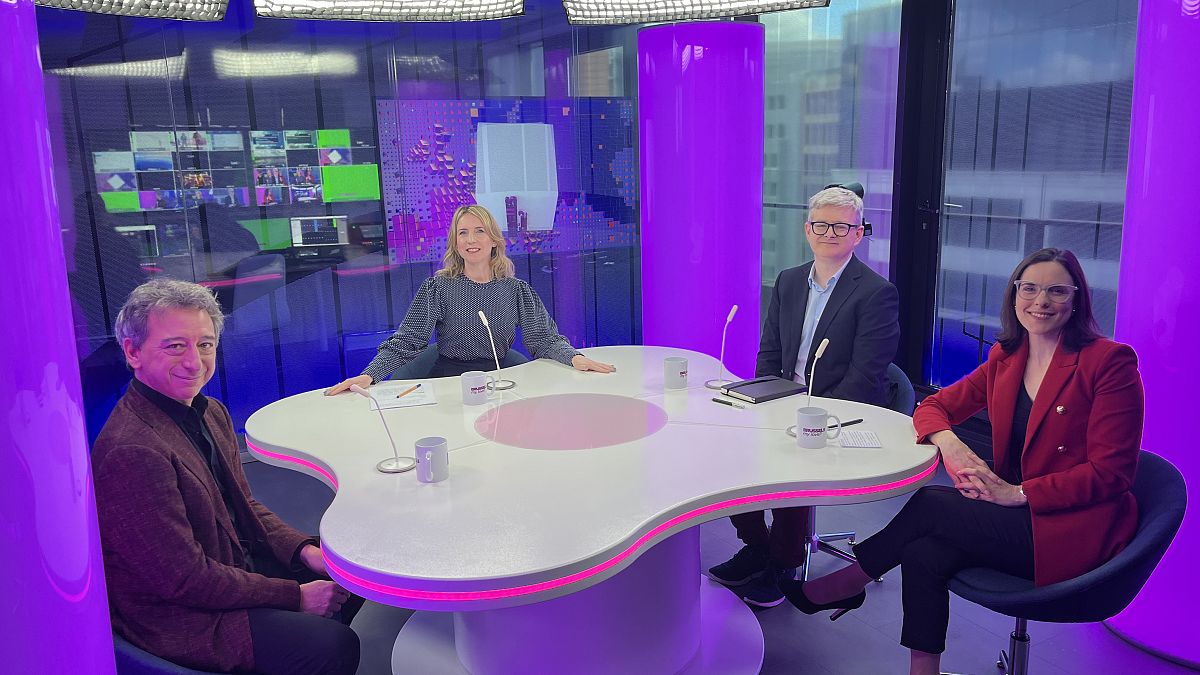
 World1 week ago
World1 week agoBrussels, my love? The EU single market is not sexy enough for voters
-

 Politics1 week ago
Politics1 week agoRepublican aims to break decades long Senate election losing streak in this blue state
-

 World1 week ago
World1 week agoEU sanctions extremist Israeli settlers over violence in the West Bank
-

 Education1 week ago
Education1 week agoVideo: Dozens of Yale Students Arrested as Campus Protests Spread
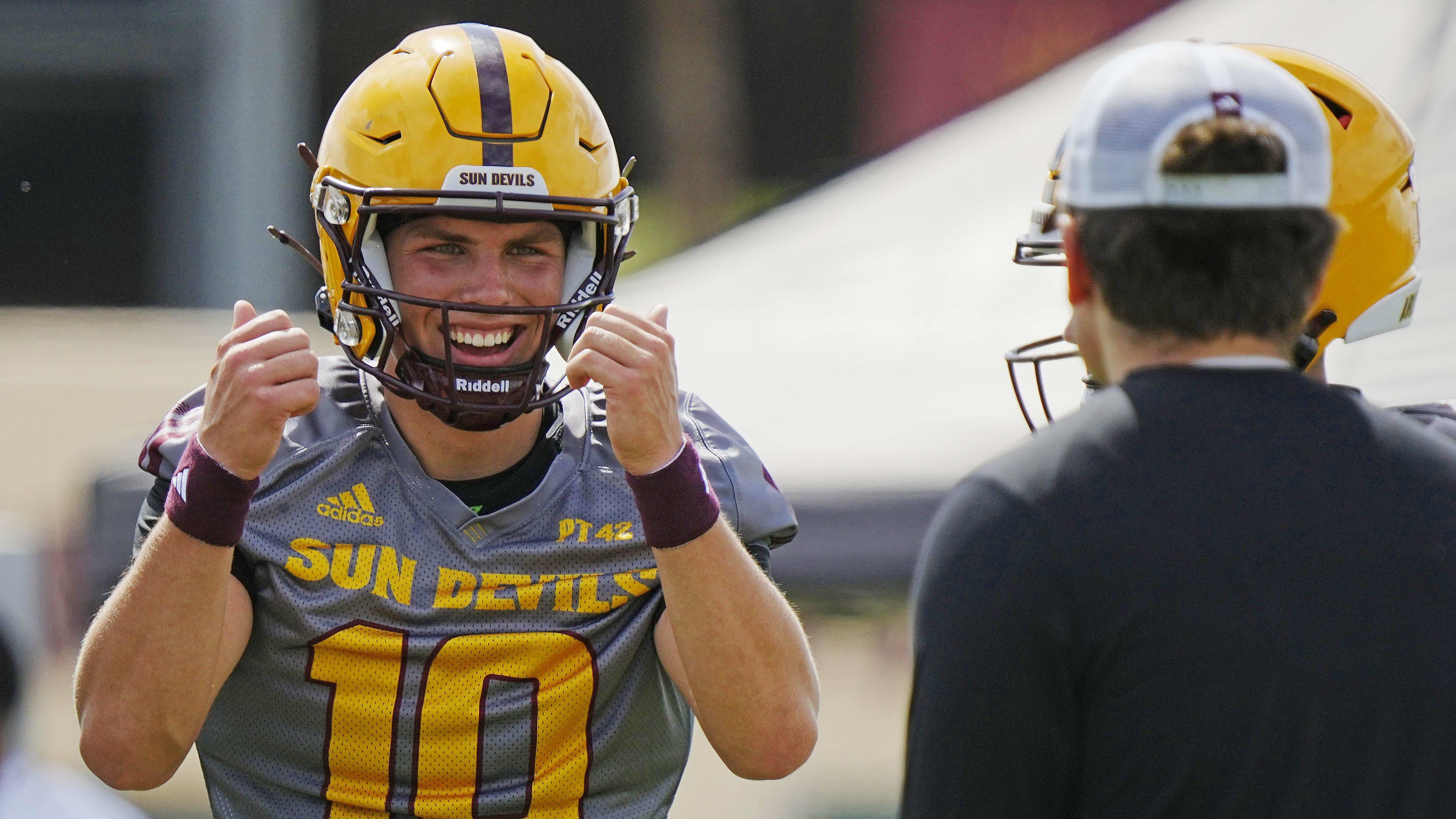
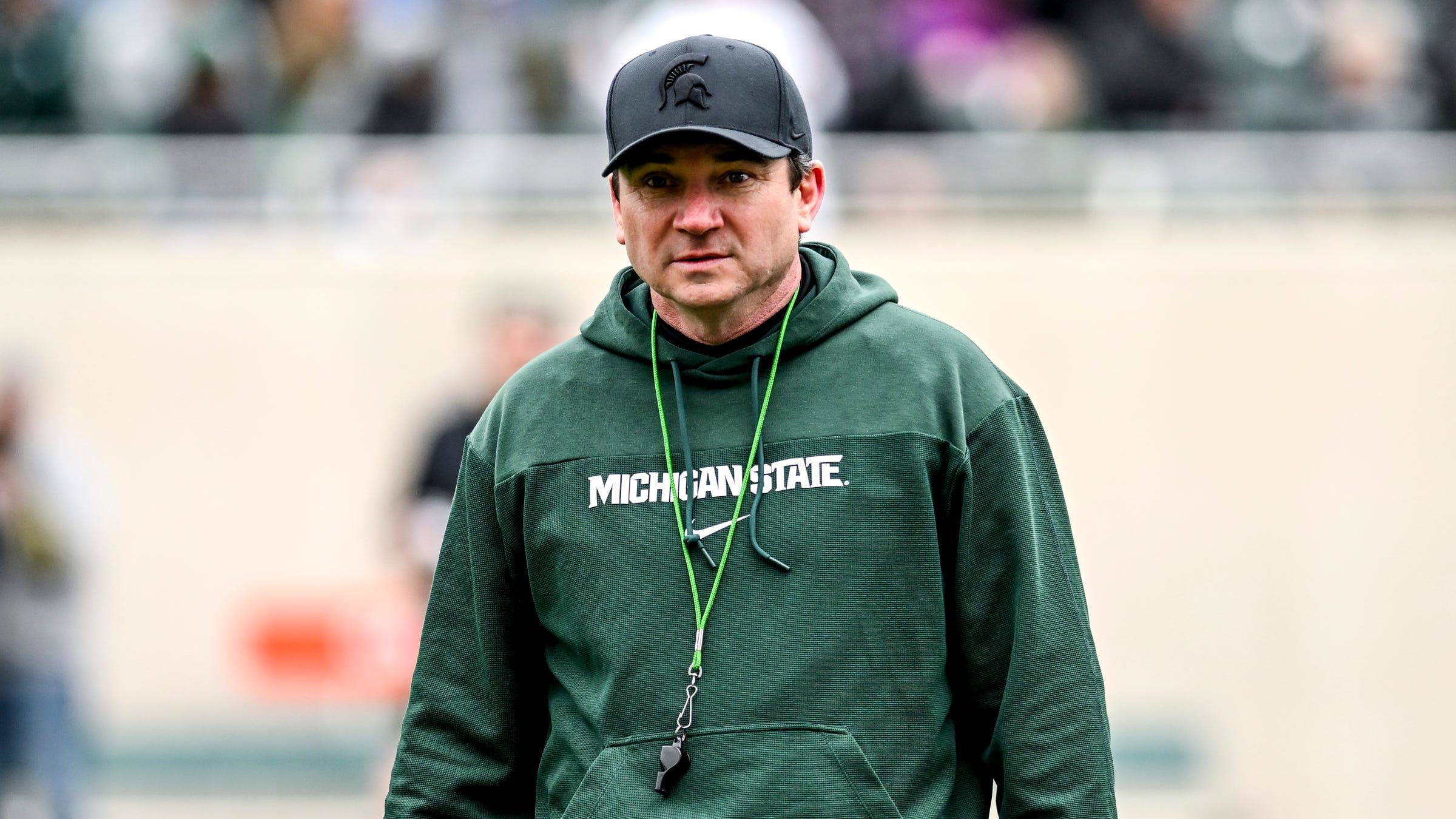

/cloudfront-us-east-1.images.arcpublishing.com/gray/4XWXFDH7DZB7VL5V4YNR5U4KAU.jpg)




